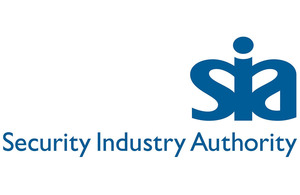Director-General, Mr Chairman, Distinguished Delegates, as the Conference of the States Parties convenes again in the shadow of the Covid-19 pandemic, I pay tribute to the Director-General and the staff of the Technical Secretariat for all their work to ensure the Conference can go ahead. And let me also congratulate Ambassador Svendsen on his appointment as Chair of the Conference.
Mr Chairman, the Chemical Weapons Convention is one of the most successful disarmament treaties in history. Within a couple of years, we will be able to acknowledge the end of declared stockpile destruction, a significant milestone. But just as this success is undeniable, so are the challenges that remain.
In recent years, we have seen chemical weapons used in Syria, Iraq, Malaysia, the UK and Russia. We must be clear about the scale of the problem; in the last decade, chemical weapons have killed and seriously injured thousands of people. This Conference must not ignore the threat. We must challenge the use of chemical weapons wherever it occurs, and whoever is responsible.
And all of this means that the Convention, and the Organisation, is approaching a crossroads. We must move in the right direction if we are to strengthen the Convention for the next generation.
Mr Chairman, Syria’s chemical weapons programme remains a grave concern. The stark fact is that the Asad regime has killed hundreds of its own people with chemical weapons. The United Kingdom continues to support the vital work of the OPCW’s Investigation and Identification Team, the IIT, to identify the perpetrators of the use of chemical weapons in Syria. And we welcome the publication of the IIT’s second report in April 2021. The report found regime forces had dropped chlorine on Saraqib in February 2018. And this represents the eighth authoritative finding of chemical weapons use by United Nations and OPCW independent investigations, an appalling further instance of chemical weapons use by the Asad regime.
In this context, it was right that the 25th Conference of States Parties suspended some of Syria’s OPCW rights and privileges until they demonstrate compliance with the Convention. Syria must cooperate fully with the Organisation and comply with United Nations Security Council Resolution 2118, including issuing visas to all OPCW staff that request them. Any retained chemical weapons that have not been destroyed pose a serious threat to international peace and security, and must be declared to the OPCW immediately. Syria, like every other State Party, must exclude completely the possibility of using chemical weapons in any circumstances. Syria must, above all, account for its deadly chemical attacks, declare every aspect of its chemical weapons programme, and resolve all outstanding issues in its original declaration.
Conference, it is high time that Syria does what is necessary to come into compliance with the Convention.
Mr Chairman, the Russian government must also account for its use of chemical weapons, both in the United Kingdom in 2018 and on its own territory in August 2020, against Mr Navalny. There is no plausible explanation for these poisonings other than Russian involvement and responsibility. The United Kingdom calls on Russia to declare Novichok and any other declarable chemical weapon production or programmes to the OPCW. Russia must explain to the Conference how a Novichok nerve agent, a weapon known to have been developed in the Soviet Union and Russia, came to be used last year against a Russian opposition politician on Russian territory.
In early October, the United Kingdom and 44 other states posed serious questions to Russia, using Article 9 of the Chemical Weapons Convention. The Russian authorities have made no attempt to account for the poisoning of Mr Navalny. Instead, we have heard ludicrous conspiracy theories and witnessed entirely unwarranted attacks on the integrity of others. Sadly, this mirrors Russia’s response to the Salisbury attack and serves to underscore that Russia is once again ignoring its obligations under the Chemical Weapons Convention.
Mr Chairman, the construction of the new Centre for Chemistry and Technology and the approaching end of declared stockpile destruction are an opportunity to ensure that the OPCW is fit for the next 25 years. We have an opportunity to ensure the Organisation is prepared for new threats and new demands. An opportunity to ensure the Organisation is using the most modern technology in vital areas like verification and inspections. And an opportunity to ensure the Organisation focuses its capacity-building offer squarely on the needs of the participating States in line with the Convention.
Mr Chairman, the Organisation is well placed to take advantage of these opportunities under the leadership of Director-General Arias. He has led the OPCW with distinction over his first term of office and the United Kingdom was pleased to join the other members of the Executive Council in recommending his re-appointment. On behalf of the United Kingdom, I offer our full support to Director-General Arias and look forward to the Conference confirming his second term.
The OPCW must have the resources needed to fulfil its mandate. We underline the need for all states to pay their assessed contributions in full and on time. The United Kingdom will be supporting the Director-General’s proposed programme and budget for 2022 and 2023, as recommended by the Executive Council. We encourage all states to join consensus on adopting the budget proposals.
The United Kingdom was delighted to sign agreements recently to provide further voluntary contributions to the OPCW, totalling £750,000. The funding will support further cyber security upgrades and contribute to the work of the Investigation and Identification Team. It will continue a project to support laboratories in Africa and Latin America to achieve OPCW designated status, following the success of a laboratory in Brazil in 2021. We are also continuing our contribution to the Africa Programme, where we want to focus more on tackling emerging threats, such as non-state actor use.
Mr Chairman, Non-Governmental Organisations play a key role in supporting the global fight against the use of chemical weapons. The United Kingdom is concerned that a handful of States Parties have blocked the accreditation of some NGOs. It is crucial that the CSP remains able to engage with a wide range of voices from civil society.
Mr Chairman, the OPCW, with a renewed budget and reappointed Director-General, will be well equipped to navigate the best route into the future. But as we walk this road together, it is vital that all States Parties fulfil their obligations under the Convention. And it is crucial that all States Parties hold to account those who do not. And it is more important than ever for all States Parties to support the work of the independent, impartial and dedicated Technical Secretariat.
We are all focussed on the common goal of a world without chemical weapons. This is only possible with an unwavering commitment from all of us to uphold the Chemical Weapons Convention in full.
The United Kingdom will continue to do all those things and remain a steadfast supporter of the OPCW and the Chemical Weapons Convention.
Mr Chairman, thank you very much indeed.
OPCW: UK Statement to to the 26th Conference of States Parties, delivered by Baroness Goldie DL

